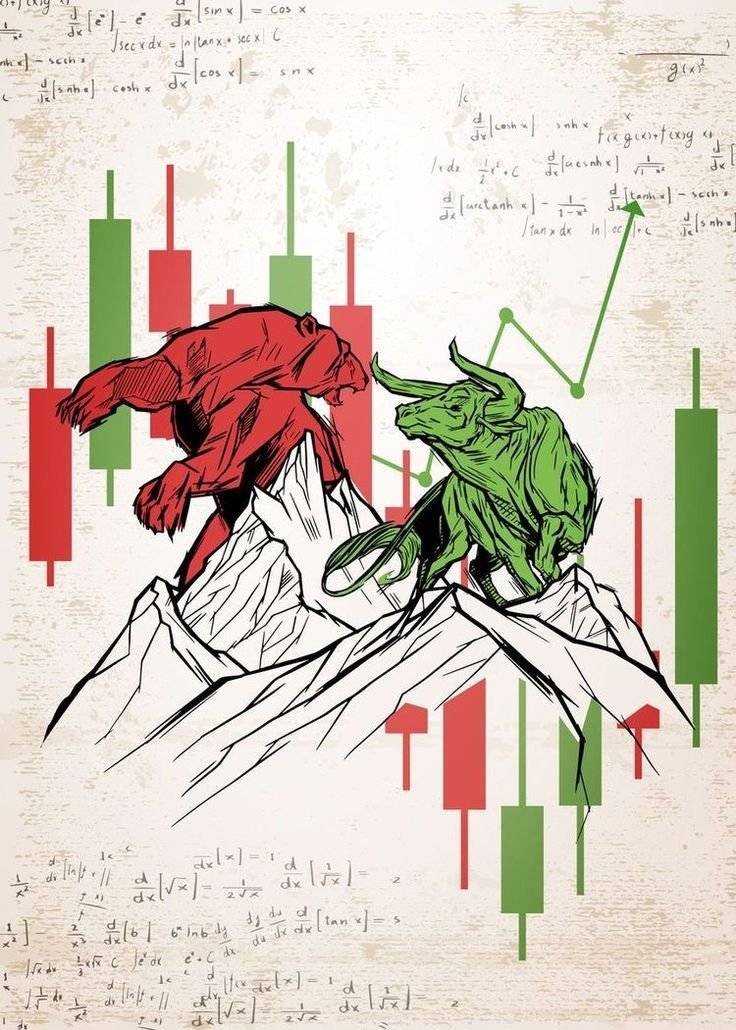European stock markets are heading for a cautious start to the trading day as global attention shifts to the U.S. presidential election. Scheduled for Tuesday, the election pits former President Donald Trump against current Vice President Kamala Harris in a tightly contested race. As the outcome remains uncertain, European markets and investors worldwide are preparing for potential volatility in the days ahead. The election’s impact on trade, economic policies, and international relations could have significant repercussions, not only in the United States but also across Europe and other global markets.
This article delves into the potential implications of the U.S. election on European stock markets, exploring key factors influencing investor sentiment, expected market responses, and the economic issues at play. With European futures indicating only slight gains—DAX up by 0.08%, CAC 40 by 0.22%, and FTSE 100 by 0.04%—the mood in Europe reflects both cautious optimism and a high degree of uncertainty as markets await one of the most consequential U.S. elections in recent history.
European Stock Market Landscape
European stocks have been showing mixed performance over recent weeks, reflecting a combination of economic resilience and investor caution. European economies, while recovering from the COVID-19 pandemic, are still grappling with challenges like inflation, energy costs, and supply chain disruptions. The European Central Bank (ECB) has taken a cautious stance, monitoring inflation closely and balancing policies to support economic growth. Meanwhile, political developments in the U.S., such as the presidential election, are set to add an extra layer of uncertainty to European markets.
The DAX (Germany), CAC 40 (France), and FTSE 100 (United Kingdom) are the key indices in Europe, each responding uniquely to both regional economic conditions and global events. The U.S. election outcome is likely to influence these indices in various ways, depending on the candidates’ stances on international trade, regulatory policies, and economic growth. European investors will be particularly attentive to any potential changes in U.S.-Europe relations, especially regarding trade agreements, tariffs, and foreign policy.
Why the U.S. Election Matters to European Markets
The U.S. election is highly relevant to European markets for several reasons. As the world’s largest economy, the U.S. plays a pivotal role in shaping global trade, economic policies, and geopolitical alliances. Changes in U.S. leadership often come with shifts in policy, impacting everything from trade to climate change initiatives. For Europe, the election could influence sectors such as technology, automotive, finance, and renewable energy, which have strong economic ties to the U.S.
- Trade Policies and Tariffs: Both Trump and Harris have different approaches to trade. During his previous term, Trump imposed tariffs on European goods, affecting industries like automotive and agriculture. Harris, on the other hand, may seek a more collaborative approach with European allies. If Harris wins, European markets might anticipate a friendlier trade environment, potentially benefiting export-heavy sectors. Conversely, if Trump returns to power, markets could brace for renewed trade tensions and tariffs, particularly on European goods.
- Regulatory Environment: The regulatory stance of the new administration could also impact European companies. Harris is expected to favor more stringent regulations, especially on tech and environmental issues. This may affect European technology and industrial companies that have significant U.S. operations. Trump, however, is known for his deregulation agenda, which could benefit European companies in sectors like pharmaceuticals and manufacturing that operate in the U.S.
- Climate and Energy Policies: Climate policy is a significant issue in the U.S. election, with Europe leading global efforts on climate change. Harris’s approach aligns more closely with Europe’s Green Deal, aiming for net-zero carbon emissions and a shift to renewable energy. This could lead to enhanced collaboration between the U.S. and Europe on green initiatives. On the other hand, Trump’s focus on traditional energy sources might present challenges for European renewable energy firms operating in the U.S.
- Geopolitical Alliances: Europe’s foreign policy and defense interests are closely linked to U.S. leadership. Harris may strengthen ties with European allies and reinforce NATO, creating a stable geopolitical environment favorable to European markets. Trump’s approach, however, may involve renegotiating alliances and reducing U.S. commitments abroad, which could introduce uncertainty in Europe’s defense and political landscape.
Market Reactions to Past U.S. Elections
Historically, European markets have shown sensitivity to U.S. elections. In 2020, when Joe Biden won the presidency, European stocks initially rose, fueled by optimism about improved trade relations and a stable regulatory environment. The U.S. election outcome tends to set the tone for global markets, influencing investor sentiment and risk appetite.
When Trump won the election in 2016, European markets saw increased volatility, as his unexpected victory and subsequent “America First” policies introduced uncertainty in trade relations. Trump’s tenure saw heightened trade tensions with Europe, leading to market fluctuations, particularly in sectors like automotive, pharmaceuticals, and technology. If Trump were to win again, European markets might react similarly, with concerns about potential tariffs and stricter trade policies impacting key sectors.
On the other hand, a Harris victory could lead to a more favorable response from European markets, with investors likely betting on improved U.S.-Europe relations and a commitment to multilateral trade policies. However, the immediate market reaction will depend on the finality of the election result, especially if there are delays or disputes in determining the winner.
European Futures Point to Caution
As of Monday morning, European futures for the DAX, CAC 40, and FTSE 100 showed only slight increases, suggesting that investors are adopting a wait-and-see approach. The muted movement in futures reflects the uncertainty surrounding the U.S. election and its potential impact on the global economy. The DAX futures rose by 0.08%, CAC 40 by 0.22%, and FTSE 100 by 0.04%, highlighting the lack of a strong directional bias ahead of the election.
This cautious sentiment indicates that investors are preparing for potential volatility. In the days leading up to the election, European markets are likely to remain relatively flat, with limited gains and losses. Traders may choose to minimize their exposure to risk assets until there is more clarity on the election outcome.
Sectors to Watch in Europe
Several sectors in Europe are particularly vulnerable to changes in U.S. policy, and these could experience heightened volatility as election results come in.
- Automotive: Europe’s automotive sector, heavily reliant on exports to the U.S., could be significantly affected. Trump’s trade policies have previously targeted European carmakers with tariffs, and a second term could mean more protectionist policies. Harris, however, is expected to adopt a more cooperative approach, potentially benefiting European automakers.
- Technology: With the U.S. taking an increasingly stringent stance on regulating Big Tech, the technology sector in Europe could feel ripple effects. Harris’s stance on stricter tech regulations might affect European tech firms with U.S. operations. Trump’s deregulation stance, conversely, could favor European tech companies expanding in the U.S.
- Renewable Energy: Harris’s commitment to renewable energy aligns closely with Europe’s goals under the Green Deal. A Harris administration may promote green energy projects, benefiting European companies involved in renewable energy. Trump’s focus on traditional energy could, however, create a less favorable environment for European renewable firms in the U.S. market.
- Finance: European banks and financial firms operating in the U.S. would be closely watching regulatory changes. Harris may favor tighter financial regulations, which could affect European banks with U.S. subsidiaries. Trump’s deregulation agenda, however, may provide a more favorable environment for these institutions.
Potential Scenarios and Market Impact
- Harris Victory: If Kamala Harris wins the presidency, European markets may respond positively due to expectations of improved trade relations, cooperation on climate policies, and stable geopolitical alliances. This could boost sectors like automotive, renewable energy, and finance, which are closely linked to the U.S. market. However, tighter regulations on technology and finance could create mixed outcomes for specific sectors.
- Trump Victory: A Trump victory could lead to a period of uncertainty in European markets, with concerns about renewed trade tensions, tariffs, and unilateral policies. Sectors like automotive and technology might face the brunt of Trump’s protectionist agenda. However, industries that benefit from deregulation, such as pharmaceuticals and traditional energy, could see a more favorable environment.
- Uncertain Outcome or Delayed Results: In the event of a prolonged vote count or legal disputes, markets could experience increased volatility and a flight to safe-haven assets. European investors might react cautiously, with sectors exposed to the U.S. market potentially seeing significant fluctuations. An uncertain outcome could lead to a spike in market volatility, as investors hedge against the lack of clarity.
Investor Strategies Leading Up to the Election
In anticipation of the U.S. election, European investors are likely to adopt defensive strategies. This may include reallocating assets to safer investments, such as government bonds, gold, or defensive stocks in sectors like utilities and healthcare. Given the potential for volatility, short-term trading may also become more common, with investors looking to capitalize on price fluctuations.
For long-term investors, the focus may be on sectors with growth potential under either administration, such as renewable energy and healthcare. Meanwhile, sectors vulnerable to trade policies, such as automotive and technology, may see cautious positioning.
Conclusion
The upcoming U.S. presidential election has cast a shadow of uncertainty over global markets, including Europe’s DAX, CAC 40, and FTSE 100. With futures pointing to a lackluster start, it is evident that European investors are treading carefully, awaiting clarity on the election outcome. The result will shape the U.S.-Europe relationship on trade, climate policy, and regulations, all of which hold significant implications for European markets.
As the world watches closely, European investors are preparing for possible volatility and adjusting their portfolios accordingly. The election could bring opportunities as well as challenges, and European markets will likely respond dynamically to the final outcome. Whether the result brings a Harris administration favoring multilateralism or a Trump return emphasizing protectionism, European markets are poised for an eventful week ahead.




